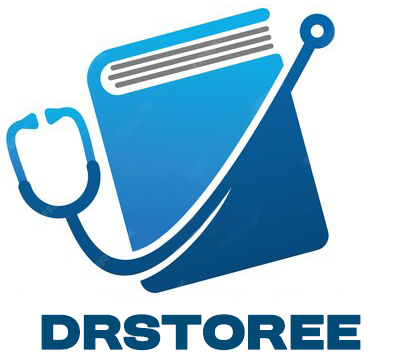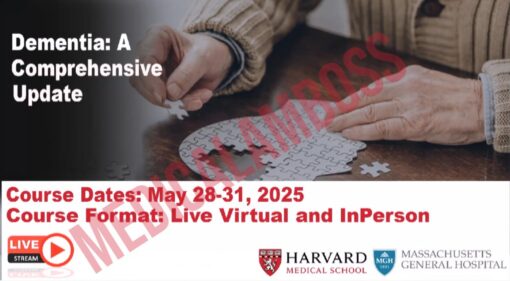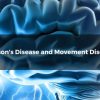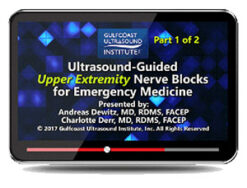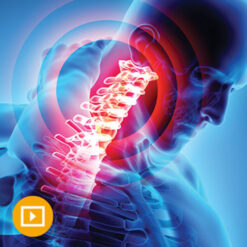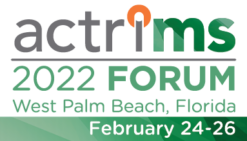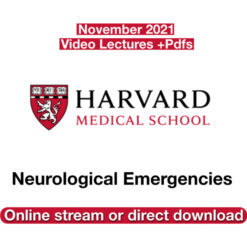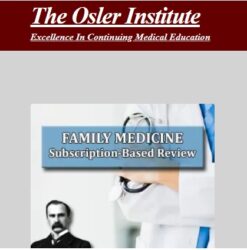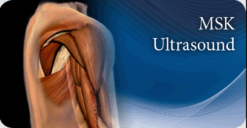Harvard Dementia A Comprehensive Update 2025
$75.00
This Product is shared via google drive download link, So please share your correct Gmail id while placing the order .Please note that there are no CME points or certificate associated with this course Samples for Courses Can be found here : Free Samples Here!
Medical Psychiatry, or Consultation Liaison Psychiatry (CL), is an exciting and rapidly growing field that is at the forefront of integrated medical and psychiatric practice in both the general hospital and outpatient settings. Providers specialize in the treatment of acute psychiatric disorders, including those at the interface of medicine and psychiatry, such as delirium, catatonia, neurocognitive disorders, and complications of psychiatric illness or interventions. There is a focus on the evaluation and comprehensive treatments, including psychopharmacologic and psychological therapies of patients with neuropsychiatric symptoms that may result from medical, surgical, gynecologic, and oncologic illness, as well as patients with primary psychiatric illness complicated by medical disease.
This course is designed to enhance participants’ knowledge and skills for diagnostic workup and treatment of patients suffering from both psychiatric and medical disorders. Course material will review cutting-edge clinical research, evidence-based interventions, and practical guidelines for clinicians and trainees. The course content will include the process of psychiatric assessment and consultation in the medical setting, including novel deliveries of care, management of challenging psychiatric presentations in the inpatient, emergency, and outpatient settings, treatment of substance use in the medical setting, and non-pharmacological interventions.
There will also be the opportunity to discuss the psychiatric impact and management of patients in specialty settings, including burn/trauma, neuropsychiatry, addiction, critical care, cardiology, oncology, transplant, women’s mental health, and other areas. This course also provides an opportunity for a comprehensive review before the American Board of Psychiatry and Neurology specialty board exams, which are being held later this year. Learners will benefit from a variety of educational formats, including lectures, case discussions, question and answer sessions, and an electronic syllabus.
Learning Objectives
Upon completion of this activity, participants will be able to:
- Describe best practices in providing psychiatric consultation in medical and surgical settings.
- Analyze the components of psychosocial formulation and apply them to complex clinical cases.
- Discuss ethical and legal considerations relevant to capacity assessments in hospitalized patients.
- Select and utilize evidence-based strategies for managing agitation in medically ill patients.
- Identify and explain key features of catatonia, neuroleptic malignant syndrome, and serotonin syndrome.
- Apply structured approaches to assess suicide risk in patients with and without co-occurring medical illness.
- Critique system-level and clinical challenges related to emergency department psychiatric boarding.
- Describe management strategies for behavioral dysregulation in developmentally delayed youth.
- Interpret ECGs in psychiatric patients and assess the risk of QTc prolongation associated with psychotropic medications.
- Explain psychiatric care considerations in intensive care and critical care environments.
- Discuss the pathophysiology of delirium and demonstrate prevention and treatment strategies.
- Assess the psychiatric and medical dimensions of eating disorders in hospitalized patients.
- Design and apply safe, evidence-based treatment plans for perinatal mental health and substance use disorders.
- Prepare comprehensive psychiatric evaluations for organ transplant candidates.
- Use integrated psychiatric approaches in the management of chronic illness, pain, and addiction.
- Identify and explain neuropsychiatric symptoms related to HIV, autoimmune, endocrine, and oncologic conditions.
- Explain the bidirectional relationship between psychiatric disorders and gastrointestinal diseases, and apply integrated management strategies to improve outcomes in patients.
- Discuss ethical, legal, and clinical considerations related to physician-assisted death, and apply best practices for psychiatric evaluation and support of patients at the end of life.
- Describe neuropsychiatric manifestations of dementia and revise treatment plans based on disease stage.
- Identify neuropsychiatric presentations associated with epilepsy and stroke and apply treatment strategies in medical settings.
- Critique diagnostic approaches to functional neurological disorders and design interdisciplinary treatment plans.
Agenda
All agenda sessions are in Eastern Time.
Wednesday, May 28, 2025
Introduction to the Course
Alireza Atri, MD, PhD
Human Cognition: An Overview
Brad Dickerson, MD, MMSc
Memory Systems & Amnesia
Andrew Budson, MD
Neuropathology of AD/ADRD: A Guide for Practicing Clinicians
Matthew P. Frosch, MD, PhD
From Proteinopathies to Neuroimaging & Biomarkers in AD/ADRD: Primer on Practice and Advances
David Wolk, MD
Morning Coffee Break
Alzheimer’s Disease & Related Dementias: Global Perspectives and Opportunities
Heather Snyder, PhD
Alzheimer’s Disease Pathobiological Definitions & Prevention Strategies
Suzanne Schindler, MD, PhD
Panel Discussion and Q&A
Alireza Atri, MD, PhD; Brad Dickerson, MD, MMSc
Lunch Break
Afternoon Introductions
Brad Dickerson, MD, MMSc
AD Dementia: Practical Evaluation & Management in Clinical Practice
Alireza Atri, MD, PhD
Afternoon Coffee Break
Mild Cognitive Impairment: Prodromal AD and Beyond
Ronald Petersen, MD, PhD
Advances in AD Experimental Therapeutics
Alireza Atri, MD, PhD
Panel Discussion and Q&A
Alireza Atri, MD, PhD; Brad Dickerson, MD, MMSc
Cocktail Reception with Faculty
Thursday, May 29, 2025
Morning Introductions
Brad Dickerson, MD, MMSc
Neuropsychology of Aging
Sandra Weintraub, PhD
Attentional and Executive Systems – Don’t Leave Home without Them
Kirk Daffner, MD
Frontotemporal Dementias: Focus on Behaviorall/Executive Variants
Bruce Miller, MD
Morning Coffee Break
Language Systems & Aphasia-Predominant Dementia Syndromes
M. Marsel Mesulam, MD
Updates on Vascular Cognitive Impairment & Dementia
Charles DeCarli, MD, FAAN, FAHA
Panel Discussion and Q&A
Alireza Atri, MD, PhD; Brad Dickerson, MD, MMSc
Lunch Break
Afternoon Introductions
Alireza Atri, MD, PhD
Lewy Body Disease, and Parkinsonian & Sensorimotor-predominant Dementias
James Galvin, MD, MPH
Assessment of Cognition in Clinical Practice
Alireza Atri, MD, PhD
Practical Compensatory Strategies for Cognitive Decline
Lynn Shaughnessy, PsyD
Assessment of Daily Function and Neuropsychiatric Symptoms/Behavior and Staging of Dementia in Practice
Brad Dickerson, MD, MMSc
Afternoon Coffee Break
Cased-Based Discussion of Lecanemab
Alireza Atri, MD, PhD; Brad Dickerson, MD
Panel Discussion and Q&A
Alireza Atri, MD, PhD
Friday, May 30, 2025
Morning Introductions
Alireza Atri, MD, PhD
Non-Pharmacological Approaches to Neuropsychiatric Symptoms and Problem Behaviors in Dementia
Helen Kales, MD
Pharmacological Management of Behavioral Problems in Dementia
Clive Ballard, MDB ChB, MRC Psych, MD
Morning Coffee Break
Practical & Ethical Considerations for Disclosure of Dementia-Related Diagnosis and Risk
Jason Karlawish, MD
Caregiving in Dementia: Impact, Consequences & Opportunities
Mary Mittelman, DrPH
Panel Discussion and Q&A
Alireza Atri, MD, PhD
Lunch Break
Afternoon Introductions
Brad Dickerson, MD, MMSc
Community Advocacy and Activism For Dementias
Katie Brandt, MM
Chronic Traumatic Encephalopathy (CTE) & Dementia
Robert Stern, PhD
Afternoon Coffee Break
Delirium, Encephalopathies and Uncommon Dementias
Jeremy Schmahmann, MD
Panel Discussion, Q&A and Conclusions
Alireza Atri, MD, PhD; Brad Dickerson, MD, MMSc
Saturday, May 31, 2025
Morning Introductions
Alireza Atri, MD, PhD
Dementia & The Law: Clinical Pearls on Testamentary Capacity and Undue Influence
Judith G. Edersheim, JD, MD; Bruce H. Price, MD
Principles & Practice of Mental Capacity and Competence in Dementia: From Finances to Firearms
Barry S. Fogel, MD
Driving, Home & Community Safety and Dementia
Margaret O’Connor, PhD, ABPP/CN
Morning Coffee Break
Advance Care Planning & Management of End-stage Dementia, Pain, Palliation & Hospice in Long-Term Care
Mary Norman, MD
Panel Discussion, Q&A and Conclusions
Alireza Atri, MD, PhD; Brad Dickerson, MD, MMSc
Related products
Critical Care - Emergency medicine
Gulfcoast Ultrasound-Guided Upper Extremity Nerve Blocks for Emergency Medicine
Anesthesiology & pain medicine
Critical Care - Emergency medicine
Anesthesiology & pain medicine
Anesthesiology & pain medicine
